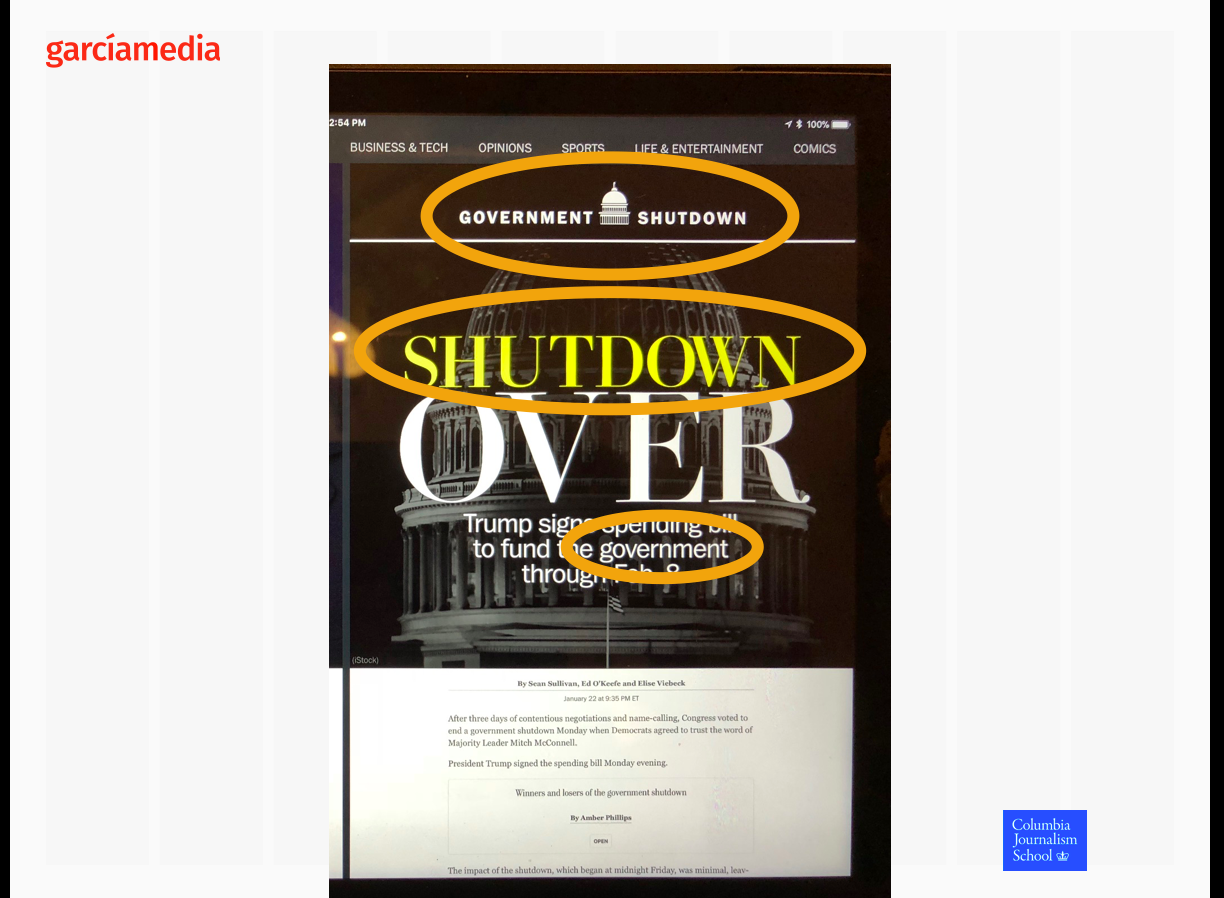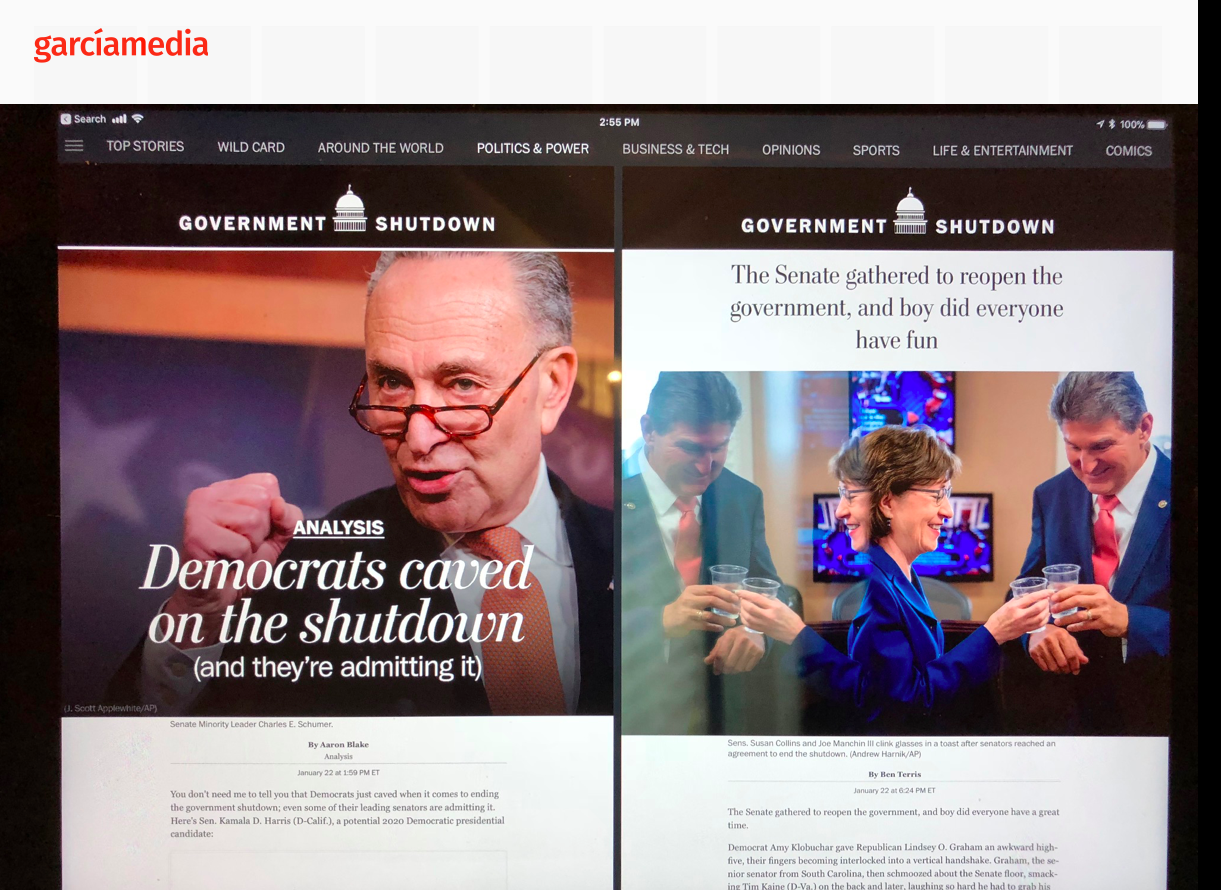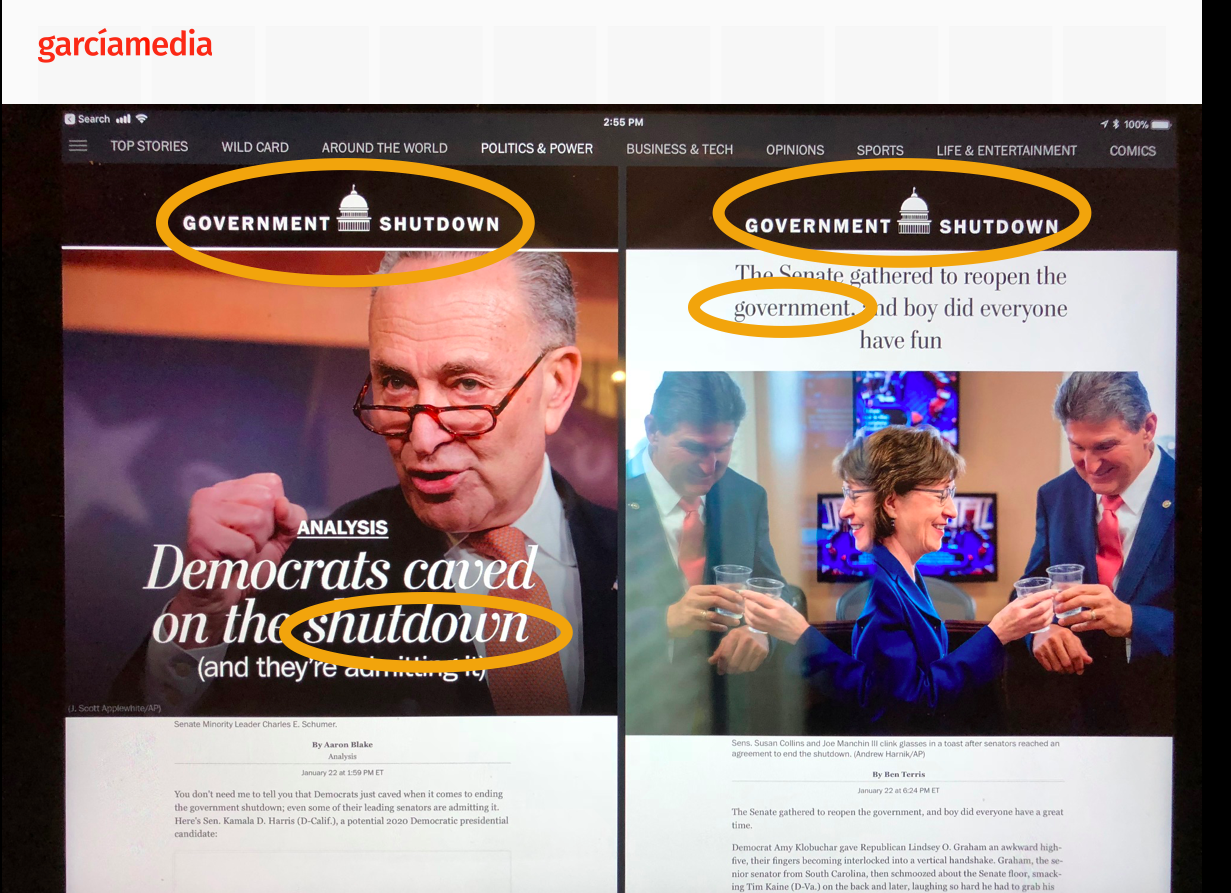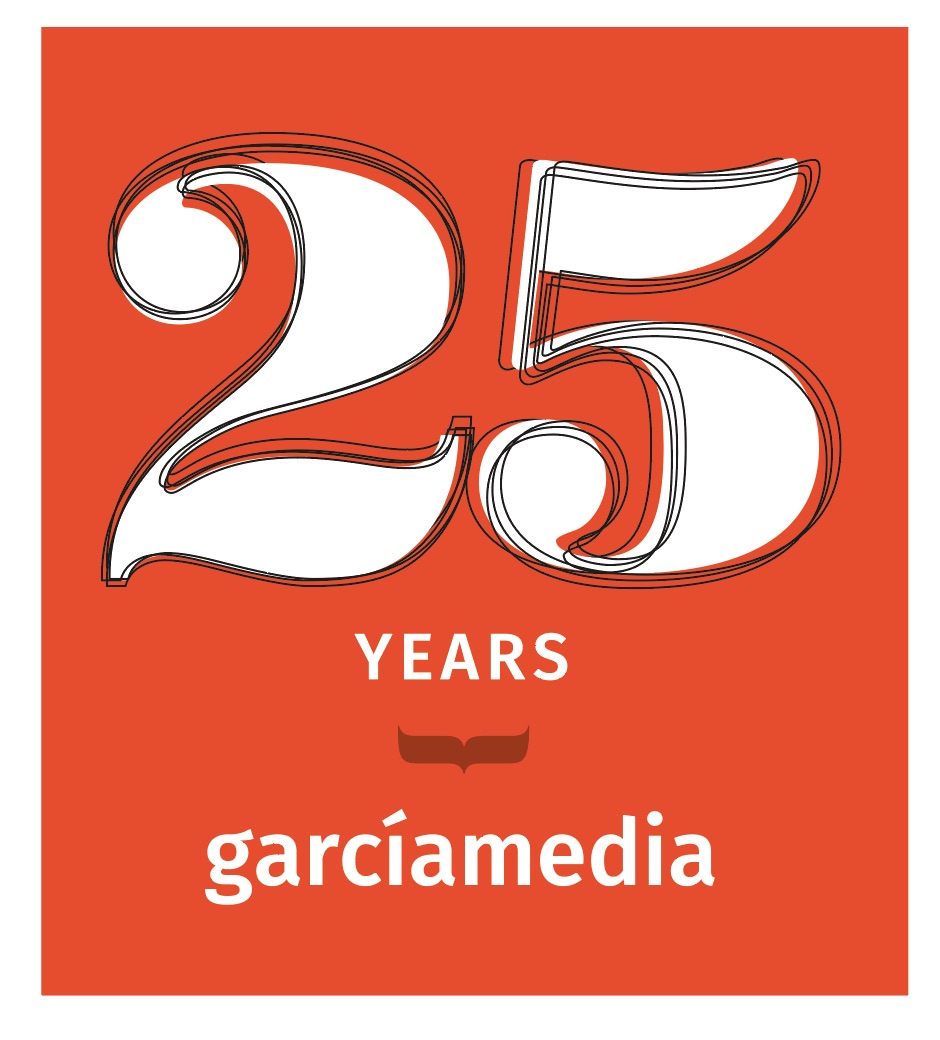It was a discussion of story structures in my Columbia class Monday. I was introducing students to the WED (Writing/Editing/Design) concept, one that I have used as the foundation of my work for over three decades.
WED is all about the marriage of words and visual images. It is also about accountability for every word we use, and every visual that we incorporate to tell the story.
Sometimes, the look of a package is appealing. The design is right on the money, but the words are not used properly. Such was the case in these examples from The Washington Post, which I used to remind the class that we advance a story with every word.
Let’s look at these examples from The Post.
All look great: well chosen typography, placement of elements and visuals overall. Yet, when you look closer, you see repetition of words.
Let’s analyze it here:

The label for this package reads Government Shutdown, a good thing as it identifies the content of the package. Yet, the word SHUTDOWN is repeated in capital letters, and so is the word government in the summary. Unnecessary repetition, I told the students, and wasted opportunities to add information.

Same thing happens in these examples.


Remember that the process of editing and designing is all about layers. Each layer contributes to add information, to enhance the storytelling process. When there is repetition, we waste opportunities to tell that story better.
That has always been the foundation of WED. Its importance has never been greater today, when we work faster and have fewer gate keepers looking at what we do.
With fewer eyeballs checking what we do, we must assume those responsibilities ourselves.
Read more about the WED concept (Writing/Editing/Design):
The WED philosophy in a multi platform media world
https://garciamedia.com/blog/the_wed_philosophy_in_a_multi_platform_media_world/
…and when The Washington Post does it right
Mario’s Speaking Engagements
April 18-19, 2018-–Newscamp ,Augsburg, Germany.

May 26, 2018 —Associacion Riograndense de Imprensa, Univesidad de Santa Cruz (Unisc), Brazil

June 3-6, 2018—The Seminar, San Antonio, Texas.

Garcia Media: Over 25 years at your service

TheMarioBlog post #2769


Please understand that I am one of the biggest fans for everything The Washington Post does, especially with its design and how it presents stories digitally. It is because of that , and because I want to make sure that I train my students to have a critical eye, and to understand that, as the WED principle applies, we must attach meaning to every word and detail that we include. That, in the end, is what makes storytelling more powerful and meaningful.